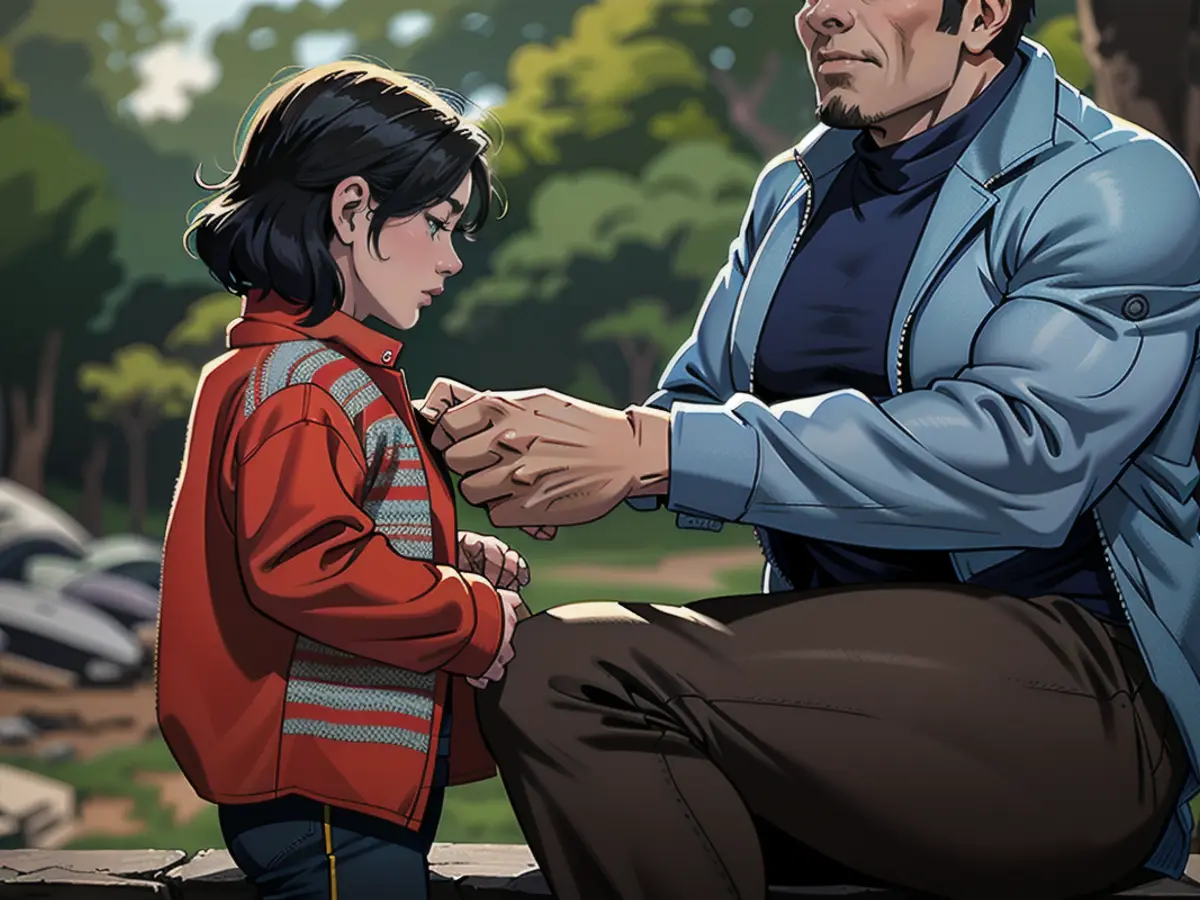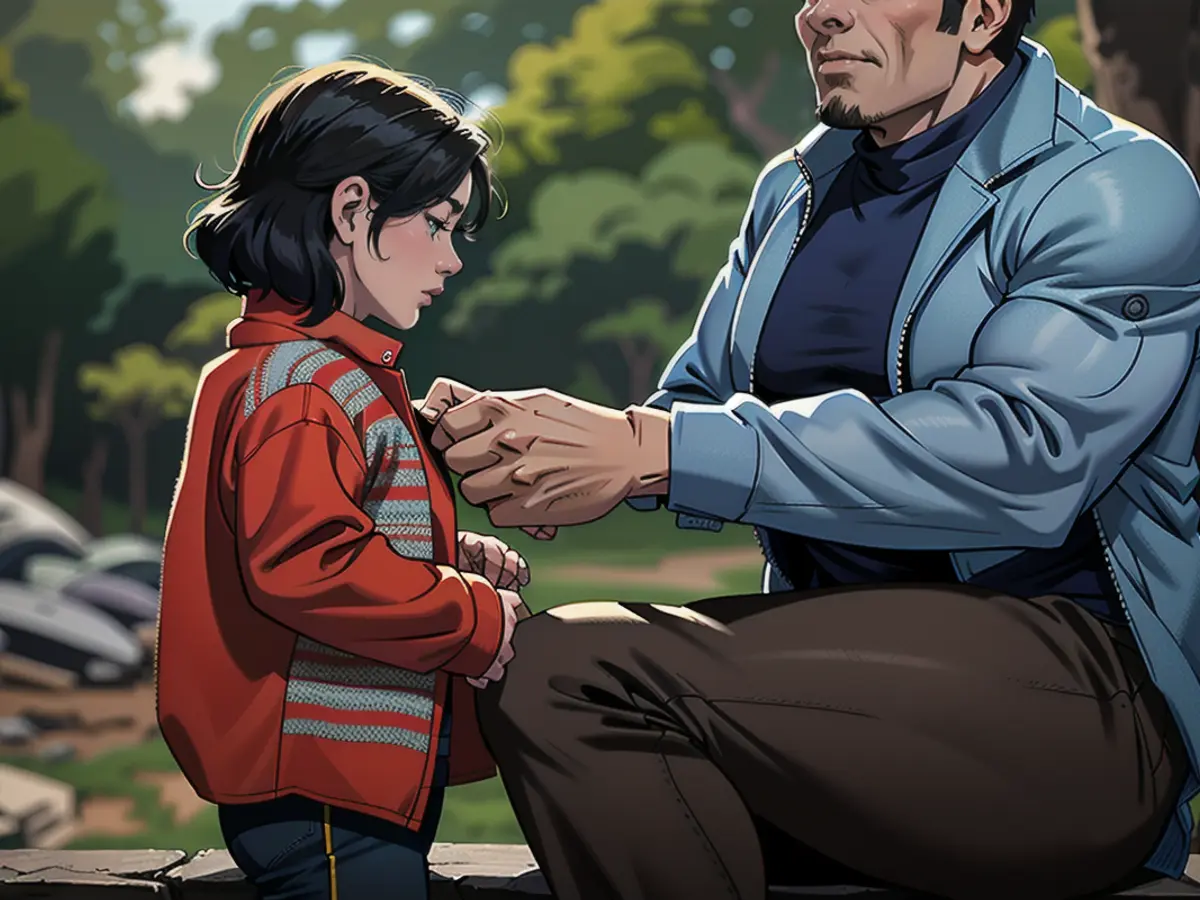A child therapist for immigrant families consistently finds one topic comes up in their sessions.
What would people think if you wore that revealing outfit? What if you didn't pursue a higher degree? What if you married someone from a different religion? What if you decided to get a divorce? Switch out any hypothetical situation that might cause social judgment; the options are infinite.
Sahaj Kaur Kohli, a licensed therapist and founder of the online mental health community Brown Girl Therapy, is intimately acquainted with these questions. Kohli, who hails from parents with Indian and Sikh roots, was brought up in a predominantly White neighborhood in Virginia, and often found it challenging to reconcile the collectivist orientation of her immigrant family's culture with the individualistic ethos of the West, as she details in her new book, "But What Will People Say? Overcoming Mental Health, Identity, Love, and Family Between Cultures."
The disparities between the two cultures became particularly apparent after a trying stint in college prompted her to return home. Kohli says she confessed her struggles with depression to her parents and yearned to seek therapy. However, they were anxious about the potential repercussions of this revelation on their standing in the community. It wasn't a lack of concern for her that motivated their actions; rather, it stemmed from the persistent belief that their daughter's mental health issues could be seen as a misstep on their part. "But what will people say?"
"We place a lot of weight on what other people think, to the point where we forget about those within the community or the family who may be hurting," Kohli stated in a chat with CNN.
Her book, which was released on May 7, delves into the fear of judgment, besides touching upon other obstacles typically encountered by children of immigrants: shame, inner sabotage, and the loss of cultural identity. "But What Will People Say?" is part personal narrative and part self-help guide, relying on Kohli's own life experiences and her work as a psychotherapist to assist children of immigrants in coping with their feelings, fostering improved family relationships, and forging a clearer connection with their identities.
In the book, Kohli offers up some of her insights which may have broader appeal. She candidly discusses her once-contentious relationship with her father, the academic difficulties she had tucked away for years, and the ordeals she overcame - experiences that numerous people, both children of immigrants and those who are not, can identify with.
CNN caught up with Kohli to discuss guilt management, the insufficiencies of Western mental health discussions, and how child immigrants' parents can better empathize with them.
This dialogue was edited for length and clarity.
Why did you feel driven to write this book?
I felt compelled to write this book because nothing comparable had been produced before. It's a resource I could have tremendously benefited from while I was coming of age. It's an honor to create something in a predominantly Western space that is highly individualistic by nature and provide cultural nuances to the wellness discourse.

Your book compares your upbringing in a family-focused Indian culture with the individual-orientated one in the West. How significant was the tension between these two cultural paradigms for you?
This tension was a daily struggle. I was subject to contrasting norms, beliefs, and expectations. On one side, there was the Western world, which propagated individualism, while on the other, I was inculcated with the value of the family unit and the community in the Indian culture. Each cultural system I was part of dictated a different version of who I was supposed to be according to my identity, gender, and cultural background.
I had to maintain distinct facets of my personality for each scenario. I adopted a second set of behavior patterns that catered to the norms in the environments I inhabited, be it the Western world or at home.
The methods we were taught to communicate, stand up for yourself, or even learn about your identity and personal needs vary significantly in the Eastern and Western contexts.
It wasn't until I embarked on my journey to graduate school in 2019 that I began to understand how vital this work is and the need for incorporating cultural diversity into these discussions.
When did you start to gain the language to sort out those feelings?
My journey to develop the vocabulary for my experiences started pretty recently. My interest in identity-driven content and mental health led me towards acquiring the language for wellness, identity, and other issues. It was only when I launched Brown Girl Therapy and started learning Eurocentric techniques and resources in grad school, which mainly appealed to individualism, that I realized the importance of involving culture in this field.
Another important aspect often overlooked is focusing on caring for others rather than just self-care. In our society, there's a lot of emphasis on self-care and individualism, which leaves out the value of family and relationships in certain communities, such as children of immigrants, Asian families, and non-Western communities. How can we balance advocating for ourselves while considering the cultural nuances of our families and the systems we live in?
Although many of us take pride in caring for others and filling various roles like daughter, sister, or parent, it's not often discussed in the self-care narratives in the Western world. There's a lack of research on intricate topics like family dynamics, functional/dysfunctional systems, codependency, and enmeshment — these concepts are often seen as either black or white in Western culture. However, in reality, they exist in a complex gray area. This middle ground is where most families and relationships reside, which is the focus of all my work.

You share various intimate stories in your book, such as being sexually assaulted and taking a longer time to complete your education — experiences that are often kept private in immigrant families. What helped you open up and be vulnerable in sharing these stories?
The process of writing this book was therapeutic for me. By revisiting my past and re-owning my experiences, I was able to reconnect with my inner child and heal. Even though I'm still not perfect in recognizing my self-worth, I've made significant progress in overcoming the shame and self-criticism.
In your book, you discussed your struggle with graduating college, which some claim was due to an extended Timeline. How did you undo the shame you felt?
I used self-compassion as my tool for recovery. While I still feel some embarrassment, I've learned that these feelings don't define me. Comparing myself to others and dwelling on the negative aspects of my past does nothing but hinder my growth. By accepting and valuing my journey, I've gained newfound freedom.
We all have painful experiences that we try to suppress due to the fear of public opinion. However, by embracing our past and owning these experiences, we can alleviate the shame associated with them. I did just that to liberate myself.
What are some common issues that immigrants report during therapy sessions?
Guilt is a prominent theme. No matter how hard they try, they constantly battle with this emotion. It prevents them from pursuing their desires and limits their potential. It's a challenge to navigate guilt when it holds them back from pursuing their goals.
Immigrants feel guilty for having more opportunities and resources than their parents or extended family members. They also feel guilt for not fitting in their new environment. The guilt can stem from not being "Western enough" or finding themselves stuck between two cultures. Other sources of guilt include setting boundaries, clashing with expectations, and prioritizing themselves over their families.
Regarding guilt, what are your recommendations?

Guilt is just an emotional experience like any other. It acts as a warning sign that you've crossed a moral boundary. Understanding this can help you identify the root of the guilt. Is it a result of hurting someone else or preventing them from being happy? Or is it just disappointment in not meeting your own or others' expectations?
In many cases, guilt experienced by immigrants may not mean you're doing anything wrong. It's simply a product of conflicting cultural values. Being clear on your values and determining which ones are at odds with your parents' values can help you navigate these emotions. With this awareness, you can decide whether to change your behavior or tolerate the discomfort of living in the gray area.
When working through complex family dynamics, it's crucial to consider your values and whether you're violating them.
The statement, "I'm not the one who needs therapy. They need therapy," is common. This mindset tends to put the blame on someone else rather than taking accountability for one's own actions and accepting the opportunity to change. Even if the other person doesn't want to change, we have control over how we respond and react.
Imagine this - if you were to seek therapy, learn more about your relationship with your mother, and work on managing your emotions when in her presence. Your attitude towards your mom would likely become more positive, making your interactions better. This isn't about influencing others but about changing your perspective and actions.
Maintaining a healthy relationship with those close to you requires understanding, compassion, and a willingness to be open-minded. Assumptions often lead to misconceptions. The best approach is to inquire and obtain more information about the other person's experiences and emotions.
For immigrant parents looking to better understand their children, cultivating curiosity, connection, and empathy is essential. Demonstrating a sincere enthusiasm to learn about their kids' intentions and thoughts is the first step.
When parents reinforce assumptions instead of actively communicating, they become disconnected from their children. Encouraging their children to embrace their bicultural identity is essential. A strong connection to their roots can help safeguard against mental health issues and enhance development.
My personal experience shows that parents can be fearful of losing control when raising their kids. My parents went through tough times as immigrants, so they wanted to maintain authority over their children's lives. This resulted in a significant space between us. It wasn't until my late 20s that I could bridge the gap and create a stronger connection with them.

Therefore, all parents should reflect on how their fears could potentially hinder their relationships with their kids.
Read also:
- No food or coffee for three days, just juice, juice, juice instead: a field report
- How to get rid of the flu if you have caught it
- Doctors warn of penis fractures and other injuries during the Christmas season
- Corona or flu epidemic? These pathogens are making us cough and sniffle right now
In her book "But What Will People Say?", Sahaj Kaur Kohli discusses the fear of judgment and how it affects children of immigrants, touching on topics such as shame, inner sabotage, and the loss of cultural identity. To better support her clients and empower others in similar situations, Kohli incorporated her personal experiences and expertise as a psychotherapist, offering insights into wellness and exploring ways to navigate cultural nuances.
As a mental health advocate, Kohli understands the impact of societal expectations on individuals and fosters self-compassion to help individuals overcome the guilt and shame that may hold them back from pursuing their wellness journey.
Source: edition.cnn.com








